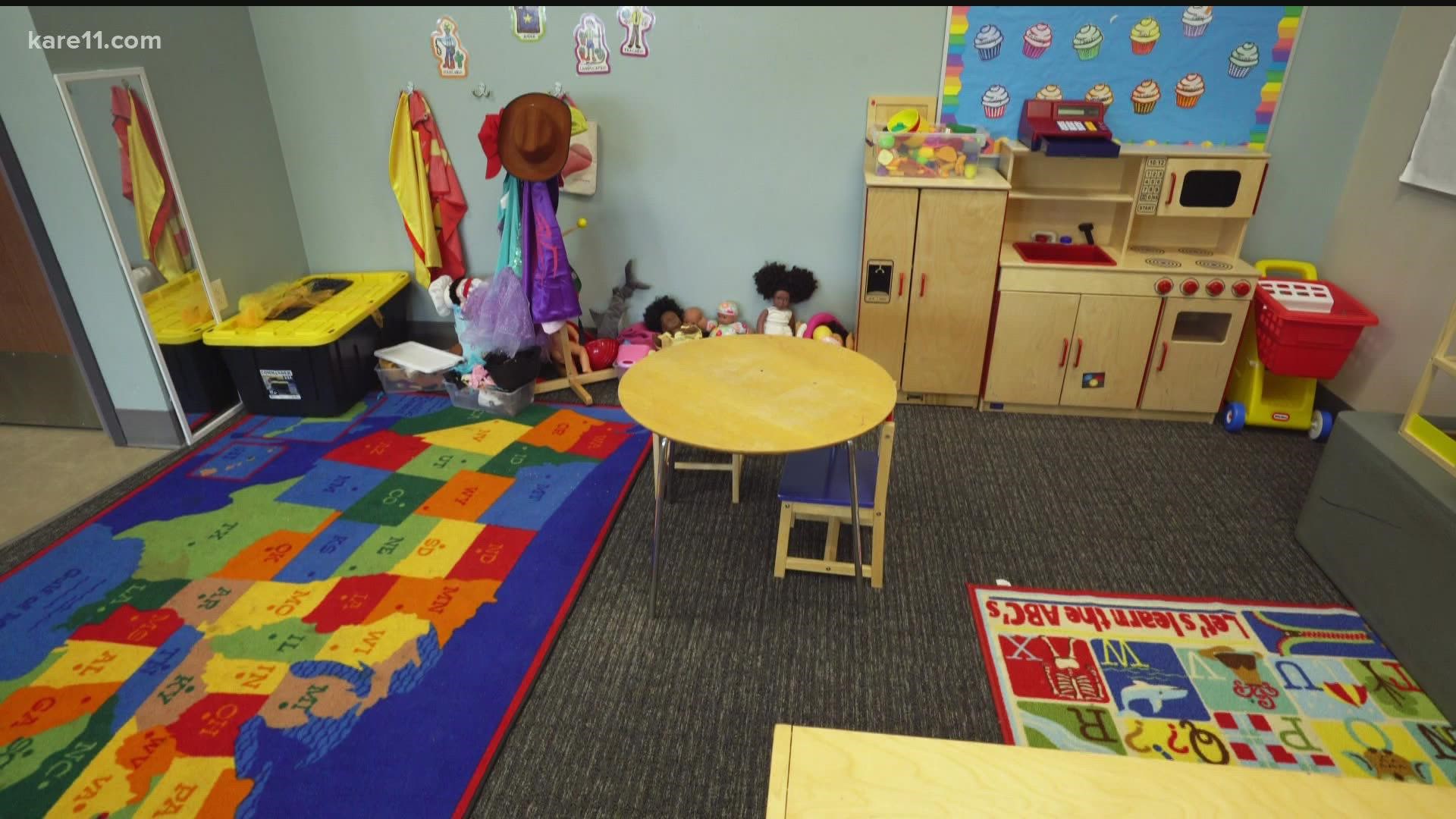MINNEAPOLIS — The Washburn Center for Children has long been a destination for kids and families in search of stability during a mental health crisis, but these days the help they can provide is limited.
"Each day, there's about 60 kids who are coming to us from all over Minneapolis," said Washburn CEO Tom Steinmetz. "Why day treatment is so unique and so important is it provides this intensive therapeutic support in a group setting, while the kid can still keep going to school and while they can stay with their family."
Even though the children range in age from just 3 to 11 years old, Steinmetz says the lessons are life-changing.
"The kids that we're working with have really significant needs," he said. "They're the kind of kids that, if they don't get that intensive support, they are going to wind up being hospitalized."
Unfortunately, Steinmetz says Washburn and other day treatment providers across the state have long waitlists, and he's seen more and more families forced to resort to hospital emergency rooms when their kids are in crisis.
It's a problem Steinmetz first spoke to KARE 11 about during a report in December 2021.
"We're facing the most severe mental health workforce crisis that I have seen in my 25 years at Washburn," Steinmetz said at the time. "Pretty quickly after kids returned to school, the phones started ringing off the hook and we reached a place where we quickly had 700 families on our waiting list."
Kent Erdahl: "What, if anything, has changed since then?"
Steinmetz: "If anything Kent, it's gotten a lot worse. What happened during January was really catastrophic. Especially as omicron hit, the impact of the pandemic on mental health services, on family mental health and on access to child and adolescent mental health treatment got much worse."
Not only did the surge drive more need due to even more disruptions to daily life, he says it hurt their ability to reach families even more. Families faced uncertainty as staff members dealt with their own COVID scares and quarantines.
It turns out the crisis wasn't only deepening at Washburn.
"We made it through last year, but January hit and its been just traumatic," said Diane Cross, President and CEO of Fraser, another day treatment provider in the Twin Cities.
Now, Fraser and Washburn are part of a statewide network of providers that are coming together for the first time in search of help.
"When this group came together, one of the largest child and adolescent day treatment programs had already closed last summer because of the impact of COVID," Steinmetz said. "When this group came together in January, almost all of the programs involved were operating at about 50% capacity already."
Though COVID cases are no longer directly driving capacity limits, staffing is. Cross says that's because while kids were out of these classrooms funding for the programs was largely missing too.
"This isn't like other programs where we get paid to be open," she said. "We only get paid, because these are medical programs, if the child is actually in center."
"If you're talking about any business, how long can you keep everyone and everything intact while bringing in 30-40% less funding?" Steinmetz said. "You can't do it for long."
A bi-partisan bill in the Minnesota House, and companion bill in the Senate, would work to address the staffing crisis by providing $62 million in grants to community health providers to hire and retain staff. The money would help provide support for both children and adults, and it would be paid for with federal COVID relief money.
"That help would bridge what we need to do so that we can serve these kids," Cross said. "We've got waitlists and if we have to cut back, it's going to cost society so much more. It's going to cost the schools, It's going to cost the health care systems, because we prevent hospitalization. We help get these kids on the right course for their lifetime."
"When you actually talk to a parent who is worried that their child may not survive this, that stays with you, that effects you," Steinmetz said. "I don't know what else it's going to take. I don't know how much worse it has to get before we finally do something about this."
The bill providing funding for hiring staff faces a more uncertain future in the Senate than it does in the House. KARE 11 spoke to Senator Carla Nelson, the Republican who authored the companion bill. She says she's confident that there is widespread, bipartisan support for investing in the mental health crisis, but she says the bill could look different by the time it makes its way through the legislature.
Stay with KARE 11 for updates on the legislation.

